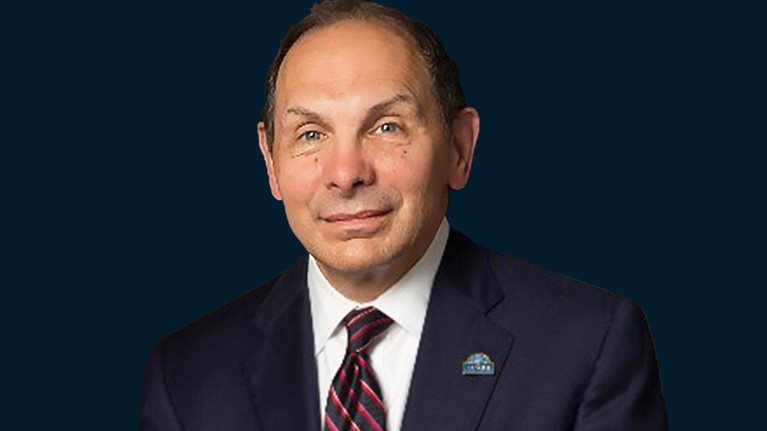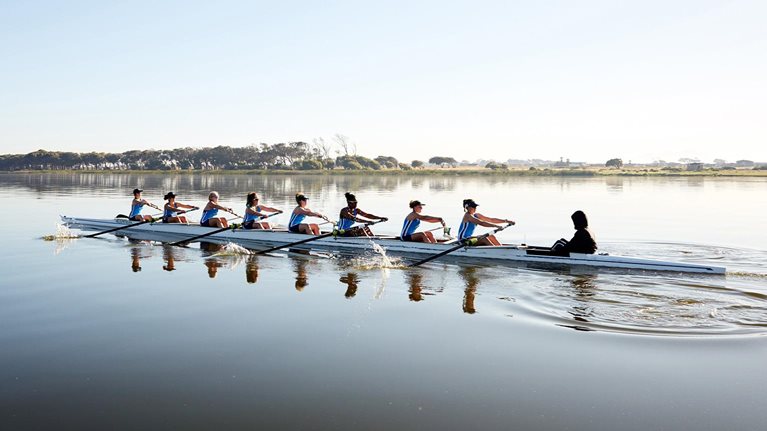Having served as the 23rd commandant of the US Coast Guard, Admiral Thad Allen has had a distinguished public service career. He remains active in public service, advisory, and leadership roles. His experience in critical operational situations, such as Hurricane Katrina and the Deepwater Horizon oil spill, has made him one of the foremost experts on guiding through crisis.
As part of McKinsey’s Leadership Excellence series, Jon Spaner and Roland Dillon talked to Admiral Allen about his approach to leadership. An edited transcript of the discussion follows.
McKinsey: What are some of the defining moments that shaped your journey and led to your biggest successes?
Admiral Thad Allen: Let me first give you some context that you won’t find in a biography. My father was a Coast Guard enlisted person, who lied about his age and joined when he was 16, after Pearl Harbor. He eventually retired as a chief petty officer. Growing up, we moved frequently—I’m 76 years old and I’ve had 47 addresses. A lot of how I’ve approached life, especially in my role in the Coast Guard, is largely related to my experience of growing up inside the service, knowing a lot about it from the enlisted side, and trying to understand the totality of the organizational structure. I’m the only commandant in the history of the Coast Guard whose father was an enlisted person.
I applied to the Coast Guard Academy after high school only because my father had been a chief. I had a five-year commitment to stay in the Coast Guard, but I had no intention of working in it beyond that. But in the end, I hung around, so I’m kind of an accidental admiral and an accidental commandant.
One of my most significant successes was the reorganization of the Coast Guard, the largest since World War II, during my tenure as Commandant. We overhauled our operational and mission support systems, turning around problematic acquisitions and ensuring the timely delivery of ships and aircraft.
But more than any single achievement, it was the cumulative effect of every job I took on that prepared me for the next challenge. I told everybody, “I don’t care what your assignment is. If you approach it as being the best person that ever did that job in the Coast Guard, you’re always going to be fine.” I always aimed to be the best at whatever I did and relatable to everyone in the Coast Guard—including to a seaman on a boat crew in Tillamook, Oregon.
McKinsey: How did your perspective change as your career advanced?
Admiral Thad Allen: There were two pivotal assignments that molded me and got me on the right path. Three years after graduating from the Coast Guard Academy, I was assigned to be commanding officer of a LORAN station [an electronic navigation station] in Thailand. It was an emergency relief, and I had to be there in three days. So, I left my soon-to-be-wife and a dog that had just had ten puppies as soon as I could get my passport. While I was there, Saigon fell. We ultimately had to shut down the LORAN chain, and I had to close the station as the last commanding officer. At that point, I had to decide whether I was going to be part of the union or a part of management and deal with the kind of problems that I had experienced there.
Coming back to the United States, I became the operations officer on a Coast Guard cutter under executive officer Bob Kramek, who went on to become the commandant of the Coast Guard. He recognized that I could handle operational issues, even when I was a bit of a wild child. He taught me how to balance work, long-term aspirations, and family. He was a fantastic role model. I had no idea at the time that I would follow in his footsteps and become a commandant as well.
I would say those two assignments were pivotal in making me a born-again Coastie and getting my head in the game.
McKinsey: In our research on leadership excellence, we found that the traits underpinning excellence in public sector leaders overlap significantly with those in the private sector. But the operating environment for public sector leaders is much more complex. What principles have been particularly important for you in navigating this complex environment?
Admiral Thad Allen: In the private sector, the focus is on creating a leadership framework and moving an organization forward, with clear fiduciary responsibilities to shareholders.
The landscape is much more complex in the public sector, making it more difficult to get the authority and resources to execute your missions. You don’t have shareholders, you have Congress, and it must fund your missions. So, how do you take a business model where you can plan, execute, and continue to add increasing value—hopefully to the public—in a framework where you’re not generating the funds yourself, you’re not making stock offerings, and so forth? So, it’s how you migrate that model over, or vice versa. When I got out of the public sector and went to the private sector, I had to prove I wasn’t stupid, despite the fact I was a four-star admiral.
To be a successful senior leader in government, you need two traits: commitment to lifelong learning and emotional intelligence. These traits will allow you to navigate a complex and technologically changing world. Technology is evolving more rapidly than we can acquire the resources and capabilities to deploy it, especially in the public sector, which is falling behind the private sector.
To be a successful senior leader in government, you need two traits: commitment to lifelong learning and emotional intelligence.
McKinsey: The world faces an increasingly high-risk environment, with few limits to the number and pace of threats, but a very real limit to our ability to acquire capability. When you were commandant, how did you navigate the changing geopolitical environment?
Admiral Thad Allen: If you wait for Congress to give you an answer or provide you with money, you’re going to fail. If you’re a public leader, you have to understand that no single entity owns the solution to a complex problem and no agency can solve a complex problem by itself.
So, how do you create unity of effort that produces the type of outcome that the American public expects after a hurricane disaster, or similar? How do you create the culture and mindset among leaders that helps them integrate horizontally and vertically across government entities, and then not-for-profits, and everything else? A lot of that has to do with how you build teams across boundaries and how you create relationships. How do you foster an attitude where everybody’s committed to this single goal?
This all moves at the speed of trust. That was the underlying theme for both Hurricane Katrina and the Deepwater Horizon oil spill, which I led as the senior federal official.
This all moves at the speed of trust.
McKinsey: How do you build and maintain that trust, especially in such a challenging environment?
Admiral Thad Allen: Trust is built through personal credibility, transparency, and open communication with your stakeholders. The more you show the way, the more it lubricates the engine to move forward, and everybody gets on board. I often told those in the Coast Guard, “Transparency of information breeds self-correcting behavior.” If everybody understands what’s going on and what the goal is, they usually will be self-motivated and more likely to understand how to work together.
McKinsey: What interferes with people collaborating in the right way?
Admiral Thad Allen: Personal interest concerns and organizational stovepipes on authorities can be major obstacles. There is such an overlap of authorities and responsibilities when you have a complex situation in government that it sometimes can feel like you’re competing against each other on who’s going to take the lead, who’s going to direct, and who’s going to manage the resources. Those are the things you have to work through, based on trust, if you’re going to be effective.
We do have organizational structures, such as incident command systems, but they are not self-executing; it has to be done with personal leadership.
For example, when I was responding to an oil spill north of New Haven as the local Coast Guard commander, I had federal authority to do whatever I felt was necessary, but the local fire chief thought he was in charge. To keep harmony, I brought him into the incident command system, which is not standard practice. I put him in charge of controlling access, making sure that all the safety rules were followed, and for preparing us in case we had a fire. He was happy with the assignment because it reflected his roles and responsibilities, and it relieved our workload. Leaders have to be prepared to do things like that.
McKinsey: We are likely going to see more cascading crises—for example, natural disasters could increasingly be exploited by malicious actors. What are the things that worry you as you think about the future?
Admiral Thad Allen: There’s no such thing as a single response to an event. Everything is a hybrid response and that response needs to be able to scale based on the complexity of the event. We’re dealing with the democratization of everything: navigation, communications—everything. We’ve moved into a digital world but we haven’t yet figured out how to be digital citizens. We have to figure out how to use technology to triangulate and get better, different angles on things so we can develop higher robustness and higher fidelity to understand and use information better. That’s a challenge.
McKinsey: If you were to give advice to new leaders that summed up what you have learned, what would it be?
Admiral Thad Allen: At the time when you are most stressed or at risk—professionally, physically, mentally, whatever—that’s the time that your actions are the most consequential to the people who work with you. That is the time that you have the greatest impact you can ever have as a leader. If you can understand that, you’re demonstrating the content of your character by your behaviors.
And I tell all senior executives that their job description is a floor, not a ceiling. Too many public servants limit themselves to what’s in their job descriptions, but true leadership means taking on more than what’s expected.


